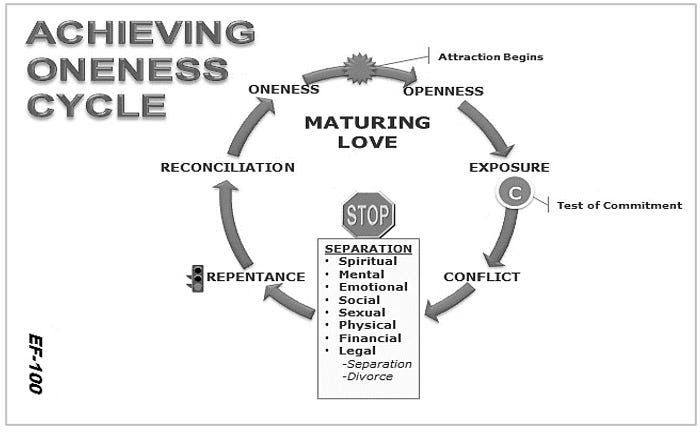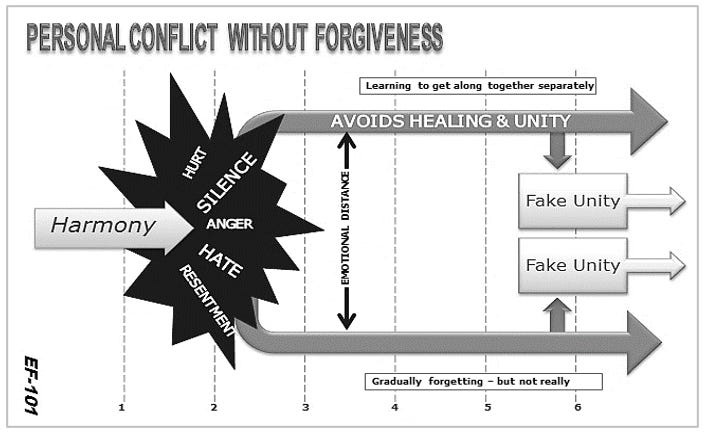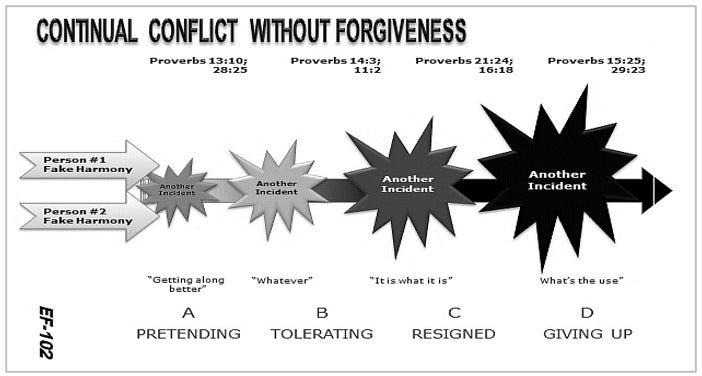MY LIFE: #51 Me Forgive You?
Dr. Stephen Phinney: Forgiveness is functioning with another, as if they never committed the offense in the first place.
THE TRAP OF HOLDING OFFENSES
So, as those who have been chosen of God, holy and beloved, put on a heart of compassion, kindness, humility, gentleness, and patience; bearing with one another, and forgiving each other, whoever has a complaint against anyone; just as the Lord forgave you, so also should you.
(Colossians 3:12-13)
God requires believers to forgive as they have been forgiven. We must forgive anyone who has hurt us and against whom we hold anything. Extending forgiveness before God can free us from anger and pain in prayer.
This cannot happen unless the Lord has reduced us to a heart of compassion, kindness, humility, gentleness, and patience, which takes brokenness. Brokenness is probably one of my least favored words because it requires pain and suffering. To embrace the truth that we learn obedience through the things we suffer requires a mindset that can only be found in Christ. It requires a mindset that is critical that we allow the power of forgiveness to manifest through our suffering. Our goal should be to identify any individuals who have hurt us so that we can fulfill this mandate.
When we have been hurt by someone (intentionally or unintentionally) and continue to be bothered by it – it is time to extend forgiveness in prayer, even if that person is deceased. One of the most common manifestations of someone NOT extending forgiveness at the moment of being hurt is the nasty habit of grudge-carrying. Anger is another classic symptom of not forgiving. An indwelt believer’s growth in Christ is immediately affected when un-forgiveness clouds the heart.
Allow me to explain the process of achieving oneness with another person – saved or not.
I was raised to avoid openness at all costs. My parents ingrained in me the idea that exposure leads to betrayal.
That might be true, but their objective was to teach their children to avoid conflict. The problem with this irony is that it separated me from relationships that could have benefited my growth. Another misnomer I was taught was never trust humans! Your dog, maybe, but humans, absolutely not.
This poor teaching added to my already detached soul. Throughout my childhood and young adult years I developed a nasty habit of refusing to admit I was wrong, refusing to repent to God or man, and avoid reconciliation due to it reopens the door for more betrayal. As you might guess, it all resulted in experiencing zero oneness with others and God. So…my attractions remained fleshly - whatever made me feel “good.”
The above illustration reveals the process of achieving oneness in a relationship. This process fits any voluntary relationship, for example, marriage, business partners, or friends. Relationships begin with an attraction of some type, leading to openness—the “C” placed right after EXPOSURE stands for commitment or a test thereof. When EXPOSURE comes, we tend to see things in ourselves and the other person we don’t like…and sometimes hate. Exposure brings conflict, which – if not dealt with through Christ, will bring about CONFLICT. If conflict is not resolved, according to the ways of Christ, SEPARATION will develop in both parties. Separation starts in the spiritual area of life and regressively goes down the list one at a time - until, in many instances, legal problems.
The only way to bridge the gap between the two, removing the sin of separation, is to bring about reconciliation. This won’t happen until one or both individuals repent. Sadly, most people cannot be moved to repentance until the separation has broken them into a pile of humility.
Reconciliation has three parts: extending forgiveness, seeking forgiveness, and rebuilding the relationship. Mature love happens once repentance and authentic reconciliation has its perfect way. God desires oneness in all relationships, even if only one member is willing to go through these steps.
Personal conflict without forgiveness leads to “living death”—a constant dread that something is wrong in the believer’s life.
The diagram above (EF-101) illustrates the effects of unresolved conflicts. What do most people do with conflict? Nothing! When a conflict happens, an emotional explosion frequently erupts. It is through this explosion that hurt, silence, anger, hate, resentment, and a multitude of other fleshly reactions separate the two in conflict. The dash lines represent time passing – hours, days, weeks, months, or years. When you are hurt, you don’t want to forgive immediately – few do. Gradually, the intensity of the emotions subsides; but without forgiveness, oneness no longer exits. Choosing NOT to forgive someone who has hurt you will eat at you like a slow growing cancer.
One of the most common deceptions is “time heals all things.” Boy, what a lie that is! Time heals nothing; in fact, it makes things worst. What time and distance does do is put both parties into a position of faking it until they make it, which normally never happens. Since time does not heal, what does? Forgiveness in Christ by releasing Him from within!
The illustration below is to show the effect of unresolved conflict when time is allowed to pass without forgiveness. Without forgiveness, conflicts tend to escalate (at least in the mind of the individual who is getting hurt). Notice that the conflicts and the emotional distance are getting larger, because the two people aren’t coming back together through forgiveness. Pride is a major barrier to the forgiveness process. When you review the verses in Proverbs, you will notice how each refers to PRIDE. Another barrier in extending forgiveness is a desire to protect ourselves. Trusting in self-protection is a form of control, which is playing-god - thus, we are not trusting God and will only trust in ourselves.
Offering forgiveness to those who have hurt you, in and through Christ, is one of the most freeing actions you can demonstrate here on earth.
I wish I could leave this story at this point, but I cannot. Even if the rejected “feels” trapped by this polarized paradox, forgiveness must be extended, even though it is one-sided. Not only that, the rejected is in need of pursuing the relationship even though it could breed more toxic rejection. Remember, it takes two to make a toxic relationship. If one stands in forgiveness, the toxicity will remain one sided. This one-sided action will establish a miraculous healing process for the one who refuses to reconcile their wrongs.
Forgiveness is functioning with another, as if they never committed the offense in the first place.
Without true forgiveness, you will stay resentful, lack in joy and act offended whenever you see, hear of, or meet someone who reminds you of this offender.
Today, thankfully, I am known for being transparent online and off. Some are inspired by such boldness. Yes, it produces an open door for rejection, but it is much better than holding offenses with people I’ve never met - minimally those who are unaware that they have wronged me. I am free today because transparency produces intimacy with Christ and others.
Coming up next is #52, “Am I Your Judge?”
Review the full library of “My Life Series” HERE.








